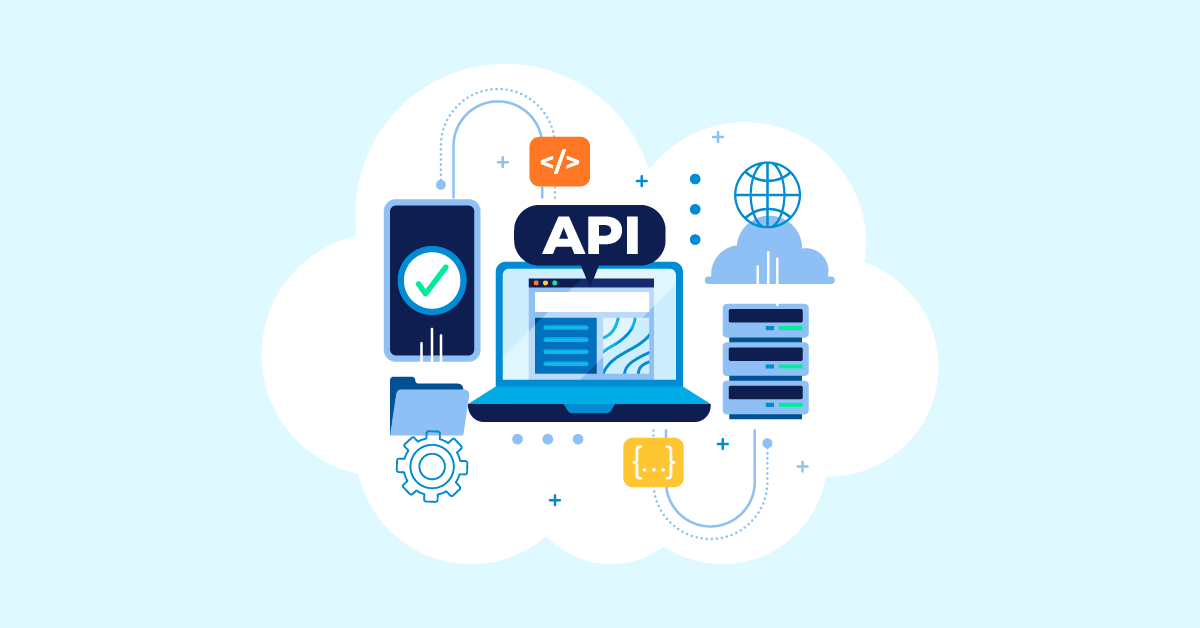
2024-05-28;
Understanding API Development and Integration
API development and integration are indispensable components of modern software architecture, enabling seamless communication and interoperability between diverse systems and applications.
In today's digital landscape, where interconnectedness reigns supreme, Application Programming Interfaces (APIs) serve as the glue that binds disparate software systems together. From powering mobile apps to facilitating e-commerce transactions, API development and integration play pivotal roles in modern software architecture. In this article, we'll delve into what API development and integration entail, their significance, and best practices for optimizing them for search engines.
What is API Development?
API development involves creating sets of rules and protocols that enable different software applications to communicate with each other. It establishes a standardized method for requesting and exchanging data between systems, irrespective of their underlying technologies or platforms.
At its core, API development focuses on designing endpoints, defining data formats, and implementing authentication mechanisms to ensure secure access to resources. Developers often leverage REST (Representational State Transfer) or GraphQL architectures to build APIs that are scalable, flexible, and easy to maintain.
Why is API Integration Important?
API integration, on the other hand, refers to the process of incorporating external APIs into an existing software application or system. It allows developers to extend the functionality of their applications by leveraging services and data provided by third-party APIs.
The significance of API integration cannot be overstated in today's interconnected world. It enables businesses to streamline workflows, enhance user experiences, and drive innovation by tapping into a vast ecosystem of APIs offering functionalities such as payment processing, geolocation services, social media integration, and more.
Best Practices for API Development and Integration
Design with Consistency: Adhere to established API design principles such as RESTful architecture or GraphQL to ensure consistency and ease of use for developers consuming your API.
Prioritize Security: Implement robust authentication and authorization mechanisms, such as OAuth 2.0 or API keys, to safeguard sensitive data and prevent unauthorized access to resources.
Optimize Performance: Minimize latency and maximize throughput by optimizing API endpoints, caching frequently accessed data, and employing techniques like pagination and batching to manage large datasets efficiently.
Provide Comprehensive Documentation: Create thorough documentation that outlines endpoints, request/response formats, authentication requirements, and usage examples to facilitate seamless integration for developers.
Versioning and Deprecation: Implement versioning strategies to ensure backward compatibility and smooth transitions when introducing changes or deprecating outdated API endpoints.
Monitor and Analyze Usage: Utilize analytics tools to track API usage, identify performance bottlenecks, and gather insights that can inform future enhancements and optimizations.
SEO Optimization for API Development and Integration Content
When crafting content related to API development and integration, incorporating relevant keywords and phrases is essential for optimizing search engine visibility. Here are some SEO-friendly tips:
Keyword Research: Identify high-volume keywords related to API development, integration, and relevant technologies using tools like Google Keyword Planner or SEMrush.
Create Engaging Content: Develop informative and engaging articles, tutorials, case studies, and best practices guides that address common pain points and provide actionable insights for developers and businesses.
Optimize Meta Tags: Ensure your article's title tags, meta descriptions, and headings include target keywords related to API development and integration to improve search engine ranking and click-through rates.
Internal and External Linking: Incorporate internal links to related articles or resources within your website to improve site structure and navigation. Additionally, include outbound links to authoritative sources or relevant APIs to enhance credibility and relevance.
Mobile Optimization: Given the increasing prevalence of mobile devices, ensure your website and content are mobile-friendly and optimized for search engines to improve visibility and accessibility across devices.
By following these best practices and incorporating SEO strategies into your content, you can effectively enhance the visibility and reach of your articles on API development and integration, attracting a broader audience of developers, businesses, and technology enthusiasts.
In conclusion, API development and integration are indispensable components of modern software architecture, enabling seamless communication and interoperability between diverse systems and applications. By understanding the fundamentals of API development, implementing best practices for integration, and optimizing content for search engines, businesses and developers can harness the power of APIs to drive innovation, enhance user experiences, and stay ahead in today's competitive digital landscape


